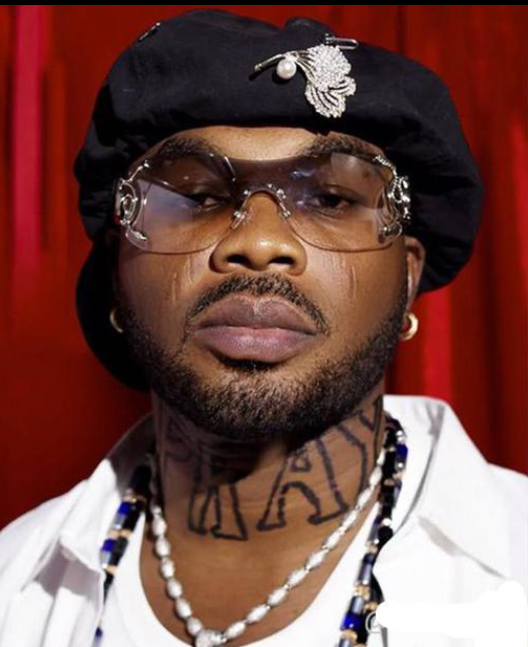
“Watch Me” Rapper Silento Sentenced to 30 Years in Prison for Killing Cousin

American rapper Silento, once a viral sensation for his chart-topping hit “Watch Me (Whip/Nae Nae),” has been sentenced to 30 years in prison following a conviction for the murder of his cousin. The sentence marks a tragic and dramatic fall from grace for the 27-year-old artist, whose real name is Richard Lamar Hawk, whose rise to fame was as rapid as his descent into legal turmoil. The sentencing came after a lengthy investigation and judicial process that concluded with a guilty plea to charges stemming from the fatal shooting of his cousin, Frederick Rooks, in January 2021.
Silento had exploded into the public consciousness in 2015 with “Watch Me (Whip/Nae Nae),” a song that quickly became a cultural phenomenon thanks to its catchy beat and accompanying dance moves that swept social media and school gymnasiums across the country. The track amassed millions of views on YouTube and earned the young rapper a wave of fame, appearing on national television and award shows while riding the wave of virality that many aspiring musicians could only dream of. But despite the widespread success of the song, Silento struggled to maintain a foothold in the music industry, and signs of personal and legal trouble began to emerge in the years that followed.
On January 21, 2021, Frederick Rooks was found dead with multiple gunshot wounds on a residential street in Panthersville, a suburb of Atlanta, Georgia. Surveillance footage, forensic evidence, and eyewitness accounts quickly led authorities to Silento, who was arrested several days later. Police alleged that Silento had driven to the area where Rooks was staying and shot him multiple times before fleeing the scene. The motive behind the killing remains unclear, but the act stunned many fans who once saw the rapper as a youthful symbol of fun and positivity.
Following his arrest, Silento was charged with several serious crimes, including malice murder, felony murder, aggravated assault, and gun possession during the commission of a felony. His legal team initially entered a not-guilty plea, citing mental health issues and requesting a psychological evaluation. Over time, it became apparent that the rapper had been experiencing a series of personal struggles, including reported bouts of paranoia and episodes of erratic behavior. At one point, he was even accused of breaking into a stranger’s home while wielding a hatchet, claiming he was searching for his girlfriend.
During the sentencing hearing, the court acknowledged Silento’s history of mental health issues but ultimately determined that the severity of the crime required a significant custodial sentence. The judge handed down a 30-year prison sentence, a decision that reflects the gravity of taking a human life and the ripple effects of violence that continue to affect families and communities. Prosecutors argued that the evidence was overwhelming and the act was deliberate and premeditated, while the defense requested leniency based on Silento’s documented struggles and history of trauma.
Family members of Frederick Rooks addressed the court during the hearing, sharing emotional statements about the pain of losing a beloved son, brother, and cousin. They spoke of a life taken too soon and the void left behind by a senseless act of violence. One family member described the tragedy as "unimaginable," saying that what made it even harder to process was that it came at the hands of someone they once considered family. The judge echoed those sentiments in his final remarks, noting that every decision has consequences and that justice, while difficult, must be served.
Silento did not speak during the sentencing but had previously expressed remorse through his legal representatives. In a statement released by his team earlier this year, he said he wished to take responsibility for his actions and hoped others would learn from his mistakes. The statement also acknowledged the deep loss suffered by the Rooks family and said Silento would live with that guilt for the rest of his life. The rapper’s legal team said they would explore the possibility of an appeal but recognized that the chances of altering the sentence were slim given the severity of the charges.
The case has sparked conversations about mental health in the music industry and the pressures faced by young artists who rise to fame quickly and with little support. Silento’s downfall is being viewed by some as a cautionary tale about the dangers of unaddressed trauma, untreated mental illness, and the isolating nature of stardom. Despite being a household name in 2015, he faded from the limelight within just a few years, with personal turmoil gradually overshadowing his musical career. The industry, known for chewing up and spitting out young talent, now faces fresh scrutiny about the role it may play in the unraveling of artists’ lives.
In the days following the sentencing, fans took to social media to express a mix of emotions—shock, sadness, and disappointment. Many recalled how “Watch Me (Whip/Nae Nae)” was an anthem of childhood and joy, never imagining that the smiling teenager in the video would end up behind bars for murder. Others pointed to the need for better mental health resources for entertainers, especially those who experience fame at an early age. The disconnect between Silento's public persona and the reality of his inner struggles underscores the growing awareness of the complexities behind celebrity culture.
As Silento begins his prison sentence, the music world reflects on a story that began with promise and ended in tragedy. Once celebrated for inspiring dance moves and happy memories, he is now a symbol of what can go wrong when success is coupled with instability and poor choices. The legacy of “Watch Me (Whip/Nae Nae)” will likely live on in internet archives and nostalgia playlists, but the story behind its creator will forever carry a darker, more sobering narrative. Silento’s story is no longer just about viral fame—it’s about the real-life consequences that come when fame fades and reality comes crashing in.


